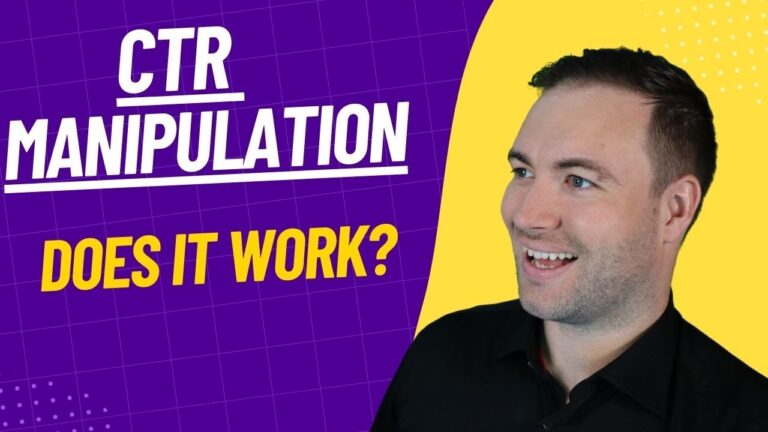Boost Your Advertising Initiatives with Advanced CTR Manipulation Service Techniques
The Duty of CTR Adjustment in Modern SEO
CTR adjustment, a debatable method in contemporary SEO, increases important inquiries regarding its efficacy and ethical ramifications. The discussion around the duty of CTR adjustment in shaping search presence highlights the fragile balance in between temporary gains and long-term sustainability in the ever-evolving landscape of digital advertising and marketing.
Comprehending CTR and Its Value
CTR, or Click-Through Rate, is a vital statistics in the realm of Browse Engine Optimization (SEO) that gauges the portion of individuals who click a certain link out of the overall number of individuals that watch it. Understanding CTR is crucial for SEO professionals as it provides insights into the effectiveness of a particular link or ad. A high CTR suggests that the link is engaging and pertinent to individuals, which can positively affect an internet site's positions in online search engine results web pages.
CTR is not only an efficiency indication but additionally an essential consider figuring out the success of internet marketing campaigns. By evaluating CTR data, marketing experts can analyze the allure of their content, keywords, and targeting techniques. Additionally, CTR plays a significant function in pay-per-click (PAY PER CLICK) marketing, as it directly influences the price and effectiveness of advertising campaign. Fundamentally, CTR is an essential statistics that influences customer involvement, internet site traffic, and ultimately, the success of search engine optimization initiatives.
Variables Influencing CTR in SEO
When assessing the performance of a web site or online campaign, it is vital to take into consideration various aspects that can influence user involvement and Click-Through Price (CTR) in Search Engine Optimization (SEARCH ENGINE OPTIMIZATION) The title tags and meta summaries of a web page play a significant role in bring in individuals to click on the web link in internet search engine outcomes. Engaging and appropriate descriptions and titles can boost the probability of users clicking through to the website.

In addition, the usage of relevant key words in titles, meta see it here summaries, and material can also affect CTR. Recognizing the search intent of users and lining up the material with their queries can enhance click-through prices and total SEO performance.
Approaches for Improving CTR
To enhance Click-Through Fees (CTR) in Search engine optimization, applying effective strategies is paramount. Furthermore, making use of power words, numbers, and unique personalities can make the search results stand out and bring in more clicks.
Additionally, creating high-grade and interesting web content is crucial for boosting CTR. Making use of multimedia aspects like video clips and images can likewise make the search results extra attractive and boost CTR.

Risks and Ethical Factors To Consider
One of the key dangers of CTR control is the potential for penalties from search engines. Browse engines like Google have advanced algorithms that can discover abnormal spikes in CTR, leading to potential penalization and a decline in positions. In addition, controling CTR can result in a bad user experience by deceiving users right into clicking on links that might not be appropriate to their search questions.

Examining the Impact on Rankings
In examining the impact of Click-Through Rate (CTR) control on online search engine positions, it becomes obvious that the technique can have both prompt and long-term repercussions for a site's presence and efficiency. Synthetically inflating CTR might lead to a short-lived boost in rankings as search engines analyze high click-through rates as a signal of significance and appeal. Nevertheless, if the boosted CTR is not backed by authentic customer involvement, search formulas can find this adjustment, leading to fines such as reduced rankings and even removal from search results page.
If a site constantly fails to satisfy individual expectations post-click, it can experience a decrease in positions despite any kind of preliminary gains from CTR adjustment. Eventually, focusing Home Page on enhancing organic CTR through real, interesting web content and individual experience is critical for lasting SEO success.
Verdict
In final thought, while CTR adjustment might supply temporary advantages in SEO, it positions significant risks to integrity and lasting success. Online search engine like Google are progressively competent at discovering such techniques, causing charges and check that lowered trust fund from individuals. CTR Manipulation Service. Sustainable SEO techniques, concentrating on genuine web content and individual involvement, are necessary for keeping trustworthiness and achieving long-term success in search rankings
CTR, or Click-Through Rate, is a vital metric in the world of Search Engine Optimization (SEO) that gauges the percentage of individuals that click on a particular web link out of the complete number of users that see it. A high CTR suggests that the link is engaging and pertinent to customers, which can favorably impact a site's positions in search engine results pages.
When evaluating the performance of a site or on-line project, it is crucial to take into consideration numerous elements that can affect customer interaction and Click-Through Price (CTR) in Look Engine Optimization (SEO) Furthermore, manipulating CTR can result in a poor user experience by deceiving users into clicking on web links that might not be pertinent to their search queries. If the increased CTR is not backed by real individual engagement, search algorithms can discover this manipulation, resulting in fines such as lowered positions or even removal from search results.